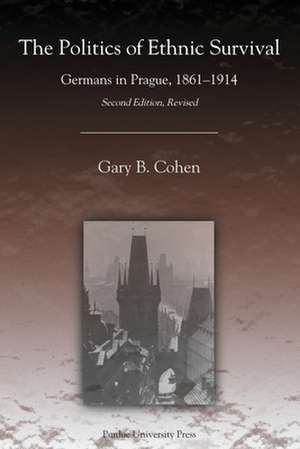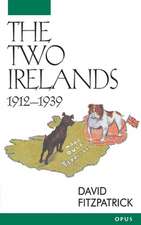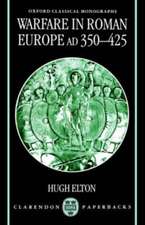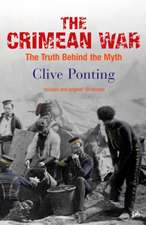The Politics of Ethnic Survival: Germans in Prague, 1861-1914: Central European Studies
Autor Gary B. Cohenen Limba Engleză Paperback – 31 ian 2006
Din seria Central European Studies
-
 Preț: 292.89 lei
Preț: 292.89 lei -
 Preț: 472.94 lei
Preț: 472.94 lei -
 Preț: 396.90 lei
Preț: 396.90 lei -
 Preț: 280.05 lei
Preț: 280.05 lei -
 Preț: 548.72 lei
Preț: 548.72 lei -
 Preț: 172.40 lei
Preț: 172.40 lei -
 Preț: 158.36 lei
Preț: 158.36 lei -
 Preț: 240.82 lei
Preț: 240.82 lei -
 Preț: 202.98 lei
Preț: 202.98 lei -
 Preț: 396.90 lei
Preț: 396.90 lei -
 Preț: 198.52 lei
Preț: 198.52 lei -
 Preț: 326.52 lei
Preț: 326.52 lei -
 Preț: 235.42 lei
Preț: 235.42 lei -
 Preț: 310.73 lei
Preț: 310.73 lei -
 Preț: 314.98 lei
Preț: 314.98 lei -
 Preț: 319.81 lei
Preț: 319.81 lei -
 Preț: 325.87 lei
Preț: 325.87 lei -
 Preț: 167.79 lei
Preț: 167.79 lei -
 Preț: 406.53 lei
Preț: 406.53 lei -
 Preț: 403.65 lei
Preț: 403.65 lei -
 Preț: 427.91 lei
Preț: 427.91 lei -
 Preț: 477.45 lei
Preț: 477.45 lei -
 Preț: 204.12 lei
Preț: 204.12 lei -
 Preț: 520.40 lei
Preț: 520.40 lei -
 Preț: 429.21 lei
Preț: 429.21 lei -
 Preț: 402.68 lei
Preț: 402.68 lei -
 Preț: 207.41 lei
Preț: 207.41 lei -
 Preț: 394.52 lei
Preț: 394.52 lei - 23%
 Preț: 593.65 lei
Preț: 593.65 lei -
 Preț: 468.70 lei
Preț: 468.70 lei -
 Preț: 424.13 lei
Preț: 424.13 lei -
 Preț: 320.20 lei
Preț: 320.20 lei -
 Preț: 273.30 lei
Preț: 273.30 lei
Preț: 281.58 lei
Nou
Puncte Express: 422
Preț estimativ în valută:
53.88€ • 56.25$ • 44.59£
53.88€ • 56.25$ • 44.59£
Carte tipărită la comandă
Livrare economică 05-19 aprilie
Preluare comenzi: 021 569.72.76
Specificații
ISBN-13: 9781557534040
ISBN-10: 1557534047
Pagini: 332
Dimensiuni: 162 x 229 x 22 mm
Greutate: 0.56 kg
Ediția:Revised
Editura: Purdue University Press
Seria Central European Studies
ISBN-10: 1557534047
Pagini: 332
Dimensiuni: 162 x 229 x 22 mm
Greutate: 0.56 kg
Ediția:Revised
Editura: Purdue University Press
Seria Central European Studies
Notă biografică
Gary B. Cohen was educated at the University of Southern California and Princeton University. He was a member of the University of Oklahoma history faculty from 1976-2001, where he taught a range of courses on modern European social and political history and East-Central Europe in the nineteenth and twentieth centuries. In August 2001, he became director of the Center of Austrian Studies, executive editor for The Austrian History Yearbook, and professor of history at the University of Minnesota, Twin Cities.














